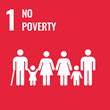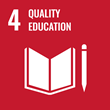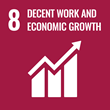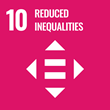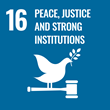
Project information
Decision making of aspiring (re)migrants to and within the EU: the case of labour market-leading migrations from Asia
(AspirE)
- Project Identification
- 101095289
- Project Period
- 1/2023 - 12/2025
- Investor / Pogramme / Project type
-
European Union
- Horizon Europe
- Cluster 2 - Culture, Creativity and Inclusive Society
- MU Faculty or unit
- Faculty of Social Studies
- Keywords
- decision-making processes of (aspiring) (re)migrants, temporality, gender, cognitive processes, emotions, relational dimension, Southeast and East Asia, EU, qualitative participatory methodologies
- Cooperating Organization
-
Czech Geological Service
Johann Wolfgang Goethe-Universität
University of Tampere
Mahidol University
University of Milano
Iscte - Instituto Universitário de Lisboa
Scalabrini Migration Center Inc. ? SMC
Institute of Philosophy, Vietnam Academy of Social Sciences
Foundation for Isaan Education and Popular Media
Despite the global COVID-19 pandemic, Europe continues to be a major destination for transnational migrants, notably from Asia and Africa. The way in which this phenomenon has been unfolding underlines the urgent need to further conceptualise transnational migration by analysing the decision-making of aspiring (re)migrants. This scholarly enterprise is critically important as mainstream migration theories put more of a focus on broader social processes and dynamics, thereby overlooking the human aspects of migration. Basing itself on several migration theories in various disciplines, this proposal adopts a framework that humanises research on (non-)migration decision-making, i.e. highlighting its human aspects in three ways: engendering, decolonising and situating the analysis in temporal, psychological, relational and social contexts. As a case study, this research project will examine the decisionmaking of aspiring (re)migrants from selected Southeast and East Asian countries (China, Japan, Philippines, Thailand, Vietnam) to and within selected EU member countries (Belgium, the Czech Republic, Germany, Italy, Portugal, Finland). These migrants are oriented towards the EU labour markets where they are concentrated in ethnic niches. Employing qualitative and participatory research methodologies, the study will map the extent to which spatial mobility policies at the EU and national levels take into account aspiring (re)migrants’ behaviour, identify the micro- and meso-level drivers of (re)migration aspiration and/or intention and determine the temporality of aspiring (re)migrants’ decision-making. The results of this project will provide concrete information as to how individuals’ migration decisions change over time and on the specific stage at which mobility policies are more likely to play a role in shaping migration outcomes, which will enhance EU migration policies
Sustainable Development Goals
Masaryk University is committed to the UN Sustainable Development Goals, which aim to improve the conditions and quality of life on our planet by 2030.
Publications
Total number of publications: 2
2024
-
Aspiring re-migrants’ behaviour in mobility policies: the case of the Czech Republic
Year: 2024
-
Vietnamese migrants in the Czech Republic : Busy entrepreneurs and their children
Routledge Handbook of the Vietnamese Diaspora, year: 2024, number of pages: 20 s.


